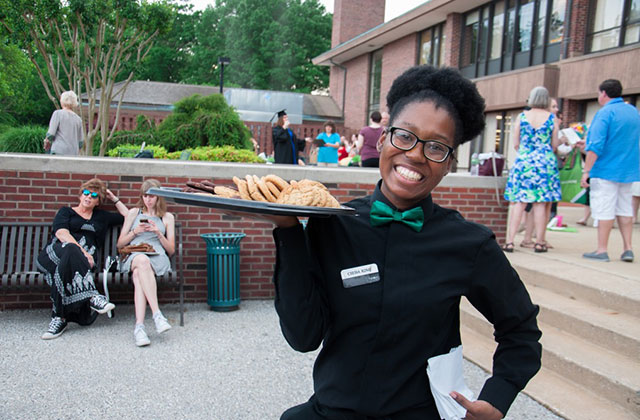Today (August 13) is Black Women’s Equal Pay Day and Black women leaders from around the country came together remotely to discuss the findings from a new report by One Fair Wage, under the theme “Black Girl Magic is Real, And it Costs.” The event was a collaboration between One Fair Wage, Netroots Nation and The United State of Women.
The report, titled “A Pertsistent Legacy of Slavery,” checks in on the restaurant industry, which has a major wage gap around race and gender. In fact, researchers found that in order for Black women to earn what white men earned in 2019 alone, they’d have to work every day of last year and 2020, up today (August 13). In New York state, for example, Black women earn nearly $8 an hour less than their white male counterparts, making the wage gap in the state’s restaurant industry between Black women and white men 60 percent higher than in the rest of the country.
Of the findings, One Fair Wage president Saru Jayaraman said in an emailed statement:
“Today Black women across the country are outraged that the subminimum wage for tipped workers—a legacy of slavery—is creating a wage gap as large as nearly $8 per hour in places like New York and Massachusetts that claim to be leaders on racial equity. They are calling on Gov. Cuomo and legislative bodies across the country to end the subminimum wage for ALL tipped workers once and for all. If we want racial justice and gender justice, we need wage justice for Black women and we need it now.”
The report also found that:
- rnt
- Only 22 percent of people of color and 43 percent of women are employed in the highest paying front of house positions in fine dining. It is this over-concentration of workers of color and women in casual restaurants and under concentration in high paid fine dining positions that is leading to a large race and gender wage gap, particularly between Black women and white men.
- The national race and gender wage gap between tipped restaurant workers who are white men and Black women stands at $4.79. However, New York and Massachusetts trail only Alabama with the highest race and gender wage gaps in the nation, at $7.74 and $7.79 respectively.
- 72 percent of Black tipped service workers reported experiencing barriers with regard to accessing unemployment insurance, 95 percent of Black tipped service workers reported being unable or unsure whether they could afford their rent or mortgage, and 84 percent percent of Black workers reported only being able to afford groceries for two weeks or less.
- Researchers found that nearly 40 percent of white managers and nearly half of managers between 35 and 44 years of age demonstrated a preference for white people over people of color.
rnt
rnt
rnt
rn
In conclusion, the report suggests that “eliminating the subminimum wage for tipped workers and passing One Fair Wage legislation both at the state level and nationwide is the most direct and impactful path to closing a nearly $5 race and gender wage gap in the restaurant sector and addressing the needs of workers struggling to survive due to the COVID-19 epidemic.”
To read the complete report, click here.
